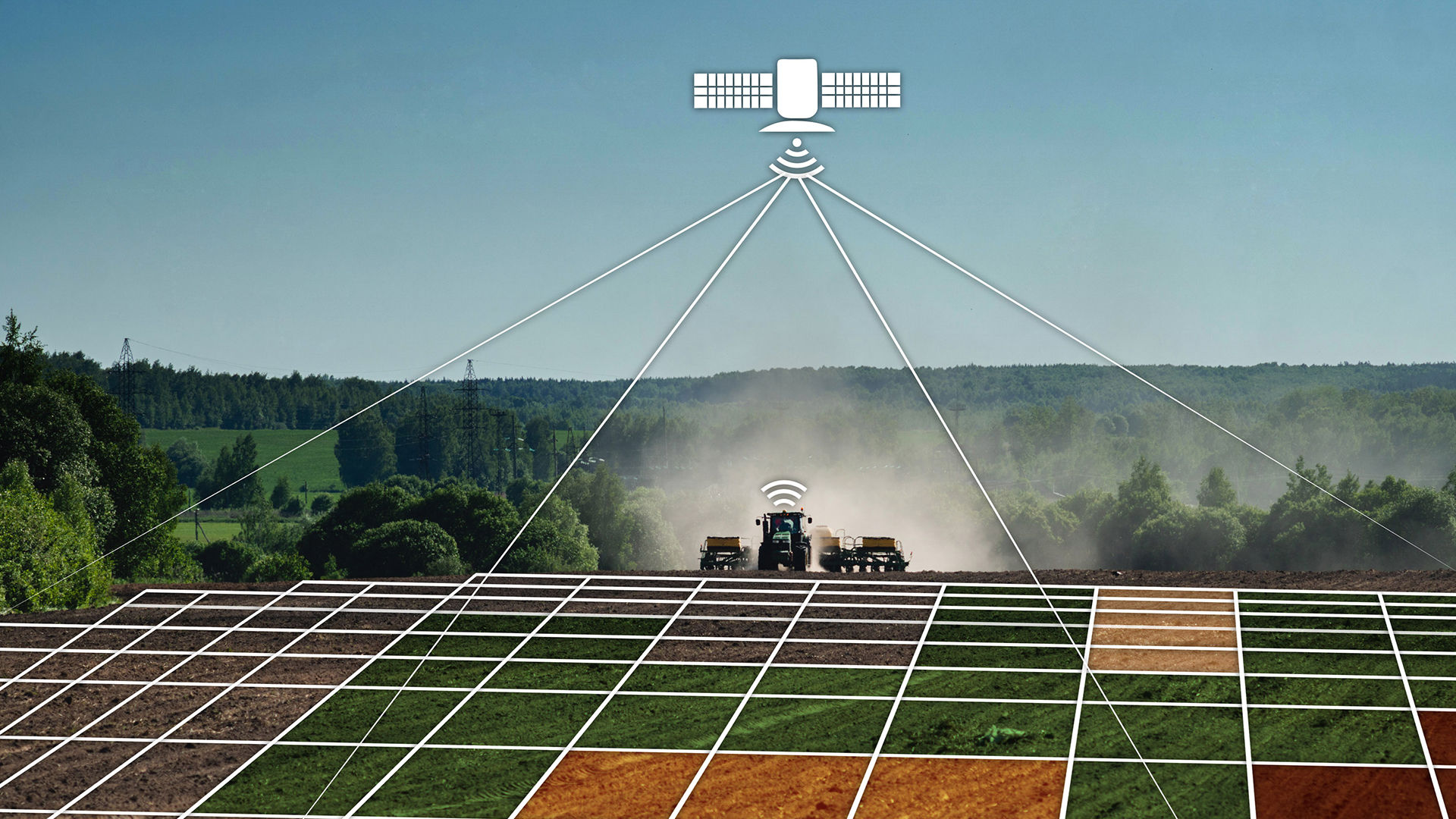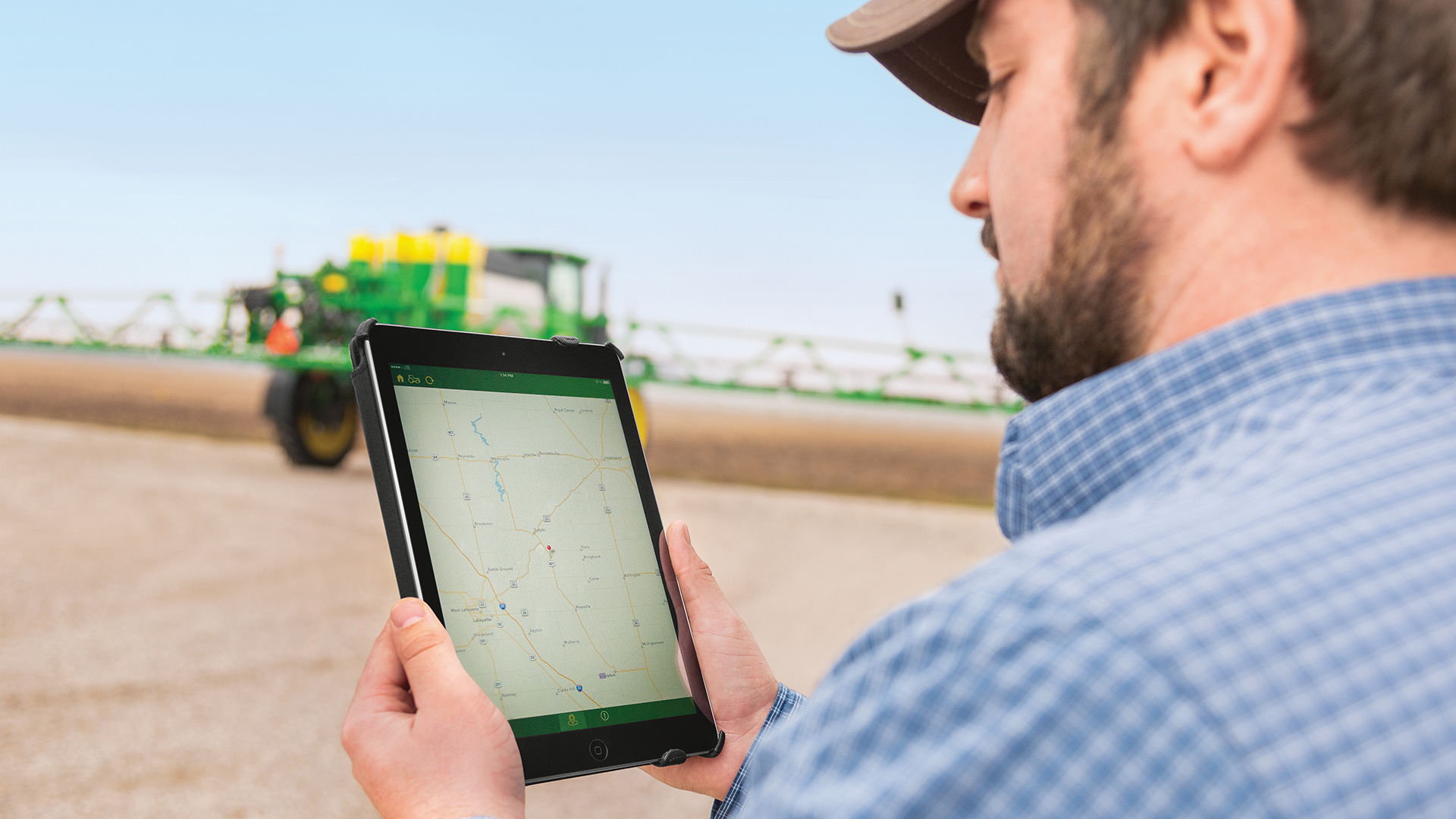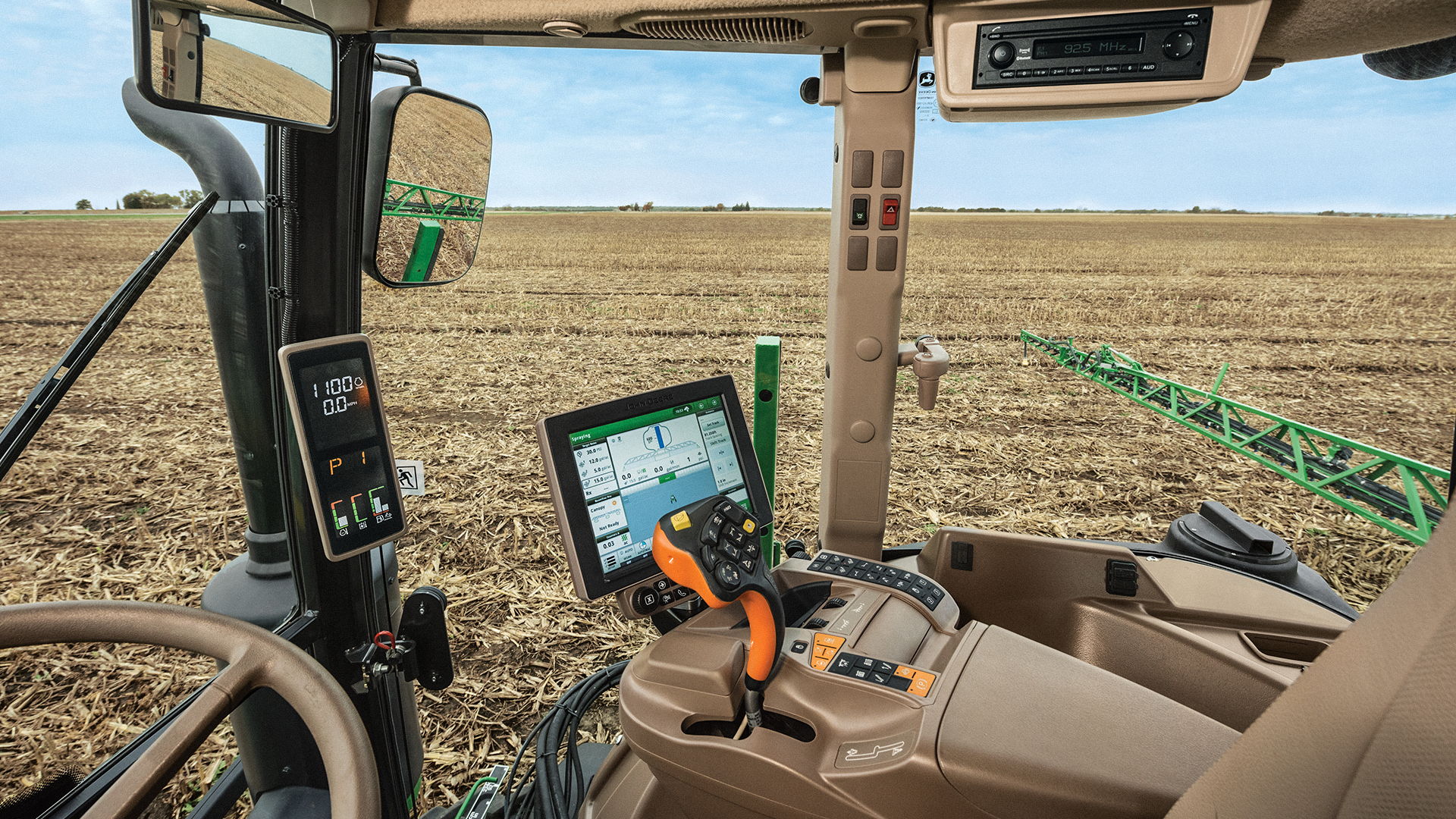Smart Farming
Set up for the digital future
Smart Farming is Ekotechnika’s latest business segment. It will make the company fit for the digital future and help it leverage the opportunities arising in this market.
In the past, agricultural productivity could be increased primarily by using larger and more modern machines. By contrast, Smart Farming makes it possible to also improve the quality of the crops and the yield per hectare while cutting costs significantly.

State-of-the-art technologies such as N-sensors, drones, yield maps, satellites and soil scanners allow performing detailed soil analysis and adapting both the sowing and the fertilization to the specific soil type.
In the 2017/2018 season, the company teamed up with John Deere to launch the ‚Lead Farms‘ project in Voronezh region. In the context of the project, the new technologies were tested on a total area of close to 1,000 hectares under real-life conditions. Variable sowing and fertilizing processes were used on several fields, adjusted to the specific soil type, for winter wheat, maize and soy beans.
The initial results are very satisfactory. Where winter wheat is concerned, for instance, less fertilizer than the conventional standard amount was used for the same yield.
In the 2018/2019 season, the tests will be expanded to cover a much larger area of roughly 30,000 hectares based on optimized data capture and quality.

While so far grid samples have been taken on the areas of, say, ten hectares, Smart Farming technology makes it possible to provide a more accurate picture of the actual soil condition on smaller sub-areas, also referred to as ‚management zones‘, by means of soil sampling and satellite-based remote reconnaissance. This enables even more individualized sowing and fertilization and, consequently, even better results.

In the 2019/2020 financial year, further tests and experiments were carried out at seven customers on a total area of 5,000 hectares. The focus was on wheat, maize and soy beans. A wide variety of approaches were tested, especially in the areas of sowing intensity and fertilization standards, which led to numerous positive insights. These must now be further validated on a large scale. The results lead to a significant increase in efficiency, especially in the sowing intensity for maize and soy beans.
In the 2019/2020 financial year, a partnership was formed with Cognitive Pilot to establish a nationwide service network for smart farming equipment in Russia. The Ekotechnika service team will be in charge of consulting, sales, installation of software and hardware, maintenance and technical support for the “Cognitive Agro Pilot” system in 35 regions of Russia. A three-year contract provides for the system to be installed on up to 10,000 combines from various agricultural equipment manufacturers. Another essential part of the partnership will be the development of new smart farming solutions and products using Cognitive Pilot’s autonomous driving and control system.
The EkoNiva service staff will offer customers advice and training and take care of the installation and data processing as well as the preventive maintenance and servicing of the Smart Farming technologies. Russian farmers will thus benefit from the reduced use of materials such as seeds, fertilizers, pesticides and fuel, while increasing grain quality and yields.